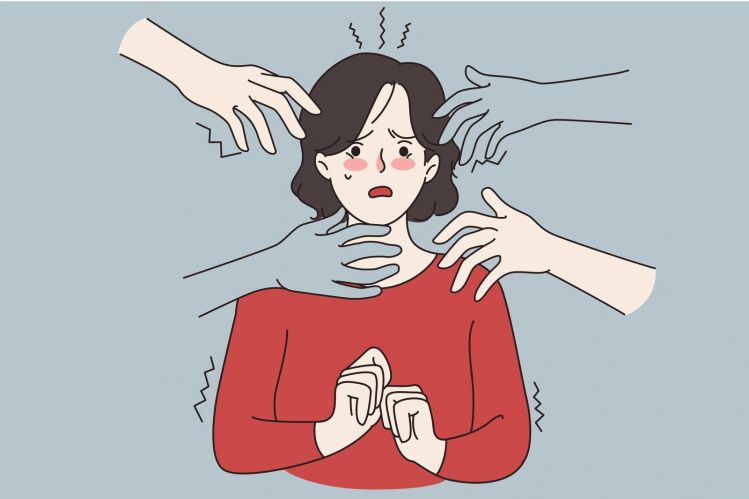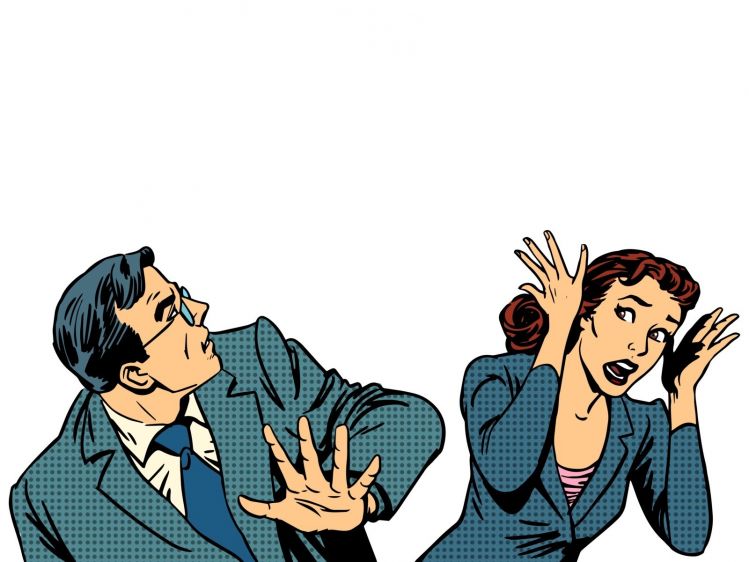Understanding Anxiety Part Two
Lesson 15
| By Louise Leighton |
Anxiety is a perfectly normal and healthy reaction to threatening or dangerous situations; it is very important for our survival as it is our natural protection - a built-in alarm, if you like. Anxiety can affect us mentally, physically, or both. Sometimes we may feel anxious, but we don't know why - this can be a constant feeling that feels out of proportion to the situation, or waves of anxiety that come and go. When this starts to affect your daily life, it can become overwhelming, and you may feel out of control.
Everyone will experience anxiety differently, and we all have our own.
Triggers; we may not always know what causes our anxiety, which can feel upsetting and stressful and can actually cause further anxious feelings. We don't always have control over things that affect our mental health; factors such as our environment, bereavement, past and present circumstances, previous trauma or our childhood experiences can all influence our mental and emotional state.
It is important to remember that anxiety feels different for everyone, however, there aresome common symptoms, listed below.
You might also experience other symptoms or difficulties that aren't listed here:
- Feeling nervous, on edge, or panicky all the time
- Feeling overwhelmed or full of dread
- Feeling out of control
- Having trouble sleeping
- Low appetite
- Finding it difficult to concentrate
- Feeling tired and grumpy
- Heart beating really fast or thinking you're having a heart attack
- Having a dry mouth
- Trembling feeling faint
- Stomach cramps and/or diarrhoea/ needing to pee more than usual
- Sweating more than usual
- Wobbly legs
- Getting very hot.

These symptoms are completely normal during periods of anxiety and stress. They can be unpleasant, but acknowledging and recognising that these symptoms are a result of your anxiety is a really valuable step in helping you begin to be able to manage them.
I have struggled with anxiety and obsessive-compulsive disorder (OCD) since childhood. I didn't know why I was always feeling shaky, scared, nauseous and hated the thought of doing anything new or that brought attention my way. Not only that, but I struggled at school and even though I had friends, I didn't believe they actually liked me. Furthermore, I now know these thoughts and feelings were irrational, though brought on by real experiences that had left their mark on me.
There were so many factors over the years - too many to write about here - that contributed to me having anxiety, which developed further to depression and OCD as I got older. When I reached my late twenties, I decided that something simply had to change.
Some people say to me now that I am a counsellor, 'How can you have anxiety, you're a counsellor, you should be sorted' or words to that affect. Anxiety is something that will never leave me. However, over time, I have learnt to live with it and manage it.
For me, this meant I had to experience my triggers and work on changing my mind and body's reaction to them.
For starters, I adjusted my lifestyle to make sure I was looking after myself by eating regularly, doing exercise and trying to improve my sleep routine.
At the root of the majority of anxiety is FEAR - False Evidence Appearing Real.
We create scenarios of our feared situation, scenarios formed from our lived experiences and irrational thought patterns, these then spiral out of control and create these scary scenarios that cause the anxiety
- it's a vicious circle.

As humans, we are able to cope with a lot more than we give ourselves credit for, but those of us with anxiety tend to overestimate the danger and underestimate our ability to cope. Our anxiety also interferes with our body's natural intuition or 'gut feeling' about a situation or circumstance, but while it is healthy and constructive to question and weigh up the pros and cons of a situation, when anxiety takes over, the above can happen - FEAR.
Through working on my triggers, I have learnt to trust my gut/intuition for the positive and negatives.
To start to tackle this catastrophic thinking, we need to start to rationalise what is actually happening. You can do this yourself with a bit of hard work and courage. Learning to recognise your individual triggers is the beginning of a journey to gain control of your emotional and physical reactions and feel better-equipped to deal with these situations in the future, in a less stressful way for the mind and body.
This can be a daunting task, as I found out when I started to work on mine. You have to be committed to change. A lot of us with anxiety want to just avoid situations that cause us to feel anxious, but this is actually making the situation worse: to be able to manage your anxiety.
You require facing your triggers head-on and retrain your mind and body to respond differently.
While the tips that helped me deal with anxiety might not work for everyone, it is all about trying and if you don't succeed, try and try again until you do. There is a lot of information out there, and you will find what works for you. As one of my favourite sayings has it, 'Nobody is going to do it for you, if you want it, you have to work for it'.
The first step is to try and understand your anxiety and where it came from. Start to make a list, diary or spreadsheet, recording the following:
- What triggered you?
- Why do you think you were triggered?
- When it happened
- Where you were
- How you felt
- How you reacted/what happened
- How long it lasted
Once you have all this information, you will then have a better understanding of what your triggers are and where they came from. You can then start to work on rationalising your thoughts and feelings and building your resilience to these triggers.
- this is a process known as 'refraining'. To do this, you need to expose yourself to your common triggers, so you can look at your thoughts and feelings from a different perspective.
During this exposure and reframing process, it helps to have what I like to call a 'toolbox' of thoughts, experiences or actual activities you can do to calm yourself, if/ when you start to feel out of control.
For me, it is going for a walk/run or, if I can't do that, conjuring up my 'happy place'. You could try these examples:
- Imagining yourself in your own happy/ relaxed place
- Going for a walk/jog/run
- Heading to the gym
- Practising yoga
- Taking the dog for a walk
- Reading
- Talking to a friend/relative

I'm listening to music really loud and dancing like an idiot (although maybe that's just me).
You might be thinking that this sounds like a lot of hard work, and you're right - it is. However, I promise you that the hard work pays off, and the end result is a life where you are able to manage and even control your anxiety, rather than 'it' control you.
Knowing - and understanding - the root cause(s) of your anxiety will help you create your own unique 'toolbox' to support you moving forward.
However, when I was working on my triggers, I discovered so much from my past that I felt I needed to explore further. I didn't have anyone I could talk to about my thoughts and feelings. Therefore, to enable me to fully understand myself and support me to repair my self-worth and confidence, I sought the help of a counsellor.
If you feel like you would benefit from extra support too, a counsellor will help you to explore your individual experience of anxiety in a safe, secure environment; together you will build an empathetic, non-judgemental and autonomous therapeutic relationship.
This relationship will be the foundation of everything you do. He/she will support you with things you can't talk to your friends or family about and will not only help you to understand what your triggers are but also how to challenge them and change them.
Louise Leighton is a verified welldoing.org counsellor in Leeds. This article was first published on the welldoing.org therapy-matching platform.
Plant Mindful
Choosing a calm life
issue 1 20-20.

